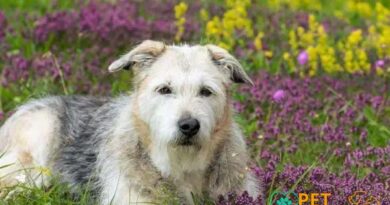What is Urban dog training
What is Urban Dog Training?
Urban dog training refers to the specialized approach to training dogs in urban environments, where space is often limited and distractions are abundant. This type of training focuses on teaching dogs how to behave appropriately in bustling city settings, which can include busy streets, crowded parks, and various public spaces. The goal is to ensure that dogs are well-adjusted and can navigate their surroundings safely and confidently.
The Importance of Socialization
One of the key components of urban dog training is socialization. Urban dogs encounter a wide range of people, other animals, and stimuli that can be overwhelming. Proper socialization helps dogs learn how to interact positively with their environment and reduces the likelihood of fear-based behaviors. Trainers often expose dogs to different sights, sounds, and experiences to build their confidence and adaptability.
Leash Training Techniques
Leash training is crucial for urban dog training, as dogs need to be well-behaved on a leash to ensure safety in crowded areas. Techniques such as loose-leash walking, where the dog learns to walk beside the owner without pulling, are emphasized. Trainers may use positive reinforcement methods to encourage desired behaviors, making walks more enjoyable for both the dog and the owner.
Addressing Behavioral Issues
Urban environments can exacerbate certain behavioral issues in dogs, such as barking, anxiety, or aggression. Urban dog training often includes strategies to address these problems. Trainers work with owners to identify triggers and develop coping mechanisms for their dogs, ensuring that they can remain calm and well-mannered in various situations.
Utilizing Positive Reinforcement
Positive reinforcement is a cornerstone of effective urban dog training. This method involves rewarding dogs for good behavior, which encourages them to repeat those behaviors. Trainers may use treats, praise, or playtime as rewards, creating a positive learning environment. This approach not only helps dogs learn commands but also strengthens the bond between the dog and its owner.
Training for Public Spaces
Urban dog training also prepares dogs for specific public spaces, such as cafes, stores, and public transportation. Trainers teach dogs how to behave in these settings, including staying calm and quiet while waiting or sitting politely at their owners’ feet. This training is essential for owners who want to include their dogs in their urban lifestyle without causing disruptions.
Adapting to Urban Challenges
Living in an urban area presents unique challenges for dog owners, such as limited outdoor space and exposure to various distractions. Urban dog training helps dogs adapt to these challenges by teaching them how to focus on their owners despite the chaos around them. This adaptability is crucial for ensuring that dogs can enjoy their urban lives while remaining well-behaved.
Group Classes vs. Private Training
When considering urban dog training, owners often have the option of group classes or private training sessions. Group classes provide socialization opportunities and allow dogs to learn alongside their peers, while private sessions offer tailored instruction to address specific issues. Both methods have their benefits, and the choice depends on the individual needs of the dog and owner.
Finding the Right Trainer
Selecting the right trainer for urban dog training is essential for success. Owners should look for trainers who have experience with urban environments and a solid understanding of canine behavior. Reading reviews, asking for recommendations, and observing training sessions can help owners make informed decisions about the best training approach for their dogs.
Continuing Education and Training
Urban dog training is not a one-time event; it requires ongoing education and practice. Owners should continue to reinforce training commands and socialization skills throughout their dogs’ lives. Regular training sessions, whether through classes or at home, help maintain good behavior and strengthen the bond between the dog and owner, ensuring a harmonious urban living experience.




